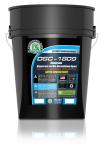By David Funkhouser
New Haven Independent (originally posted July 29, 2010)
You may already be carrying quantum dots, carbon nanotubes and nano-silver around in your pocket: They’re all around us, part of a new industrial revolution that feeds a market for products like cell phones and bug-repellent clothing that could reach $2.6 trillion worldwide by 2015.
The federal government is trying to drive this runaway train with one hand on the throttle and another on the brakes. One agency is calling for a greater push to get nano-based products to market, while another says the government needs to put more emphasis on developing health and environmental standards.
A new General Accounting Office study laments the lack of information about the properties of nanomaterials and their potential risks and toxicity to the environment and human health. The report urges the federal Environmental Protection Agency (EPA) to move ahead with plans to gather information about how nanomaterials are being used in manufacturing, and to treat nanomaterials as essentially new chemicals that would require more extensive analysis than materials already in use.


